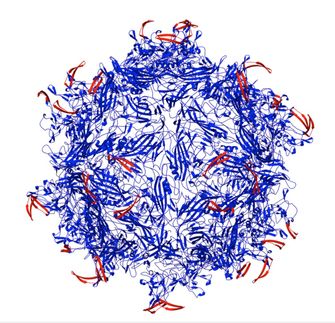Angiotech Pharmaceuticals and Athersys announce results from phase I study of Multistem in heart attack patients
Advertisement
Angiotech Pharmaceuticals, Inc. and partner Athersys, Inc. announced updated results from its phase I clinical trial of MultiStem(R), its allogeneic cell therapy product, administered to individuals following acute myocardial infarction (AMI), more commonly referred to as a heart attack. The updated study results were presented at the Transcatheter Cardiovascular Therapeutics (TCT) Conference held in Washington, D.C. Dr. Marc Penn, M.D., Ph.D., co-principal investigator of this study and Director of Cardiovascular Cell Therapy at the Cleveland Clinic, and Director of the Skirball Laboratory for Cardiovascular Cellular Therapeutics presented the results at the Symposium "Strategies for Cardiovascular Repair: Stem Cell Therapy and Beyond." The study results, based on four months of post-treatment patient data, demonstrate that MultiStem was well tolerated at all dose levels and also suggest improvement in heart function in treated patients.
New data presented by Dr. Penn included additional information about the nature and incidence of adverse events (AEs) over the first four months of the trial, demonstrating that the AEs were generally mild-to-moderate in nature, there was no dose dependent effect of MultiStem on AEs, and overall, MultiStem had a favorable safety profile. Further, Dr. Penn shared the results from additional analysis of echocardiogram data collected over the first four months of the study, which suggests that MultiStem administration may also provide improvements in other measures of heart function. Patients receiving MultiStem, for instance, demonstrated a meaningful improvement in mean wall motion score at four months compared to baseline, though this improvement was not statistically significant. Interestingly, among those patients with more severe heart attacks (i.e. left ventricular ejection fraction (LVEF), a measure of heart function, (less than or equal to) 45), the mean wall motion score for treated patients improved over the four-month period, while for registry patients it worsened over this time.
"We are continuing to see strong findings from this phase I study that suggest that MultiStem is well tolerated and that administration following a heart attack could provide a meaningful improvement in functional heart measures," said Dr. Penn. "These data are the first from a human trial that match the magnitude of effect seen in the preclinical studies, and support further evaluation of MultiStem as a safe and effective treatment following heart attack."
The phase I clinical trial is an open label, multi-center dose escalation trial evaluating the safety and maximum tolerated dose of a single administration of allogeneic MultiStem cells following an AMI. Enrolled patients received MultiStem delivered via a catheter into the damaged region of the heart 2-5 days following percutaneous coronary intervention, a standard treatment for heart attack. The study includes patients in three treatment cohorts or dose groups (20 million, 50 million and 100 million cells per patient) and a registry group where patients received only standard of care. Nineteen treated and six registry subjects participated in the study. The trial is being conducted at cardiovascular treatment centers in the United States, including the Cleveland Clinic, Columbia University Medical Center, Henry Ford Health System, MetroHealth System, Cardiology PC, The Care Group, and Hamot Medical Center.
In his presentation, Dr. Penn also highlighted initial findings from the phase I clinical trial, which were announced by Athersys in July. Based on four months of post-treatment patient data, the findings showed that administration of MultiStem was well tolerated at all dose levels and there were no clinically significant changes in vital signs, allergic reactions or infusion-related toxicities. Each of the trial's three dose groups demonstrated improvement in mean LVEF when compared to baseline. Further, patients in the MultiStem 50 million cell dose group showed a statistically significant improvement in mean four-month LVEF relative to baseline with a 23.4% improvement (p(less than)0.02). Additionally, in those patients with more severe heart attacks and LVEFs less than or equal to only 45%, the MultiStem 50 and 100 million cell dose groups each demonstrated a greater than 25% improvement in mean LVEF when compared to baseline.
Athersys and Angiotech continue to evaluate the phase I results with study investigators and have begun planning for a subsequent clinical study, which they currently anticipate will be initiated in 2011. Further guidance about subsequent clinical development, such as trial design and timing, will be provided after evaluation and planning are completed and discussion with the FDA has occurred.

























































